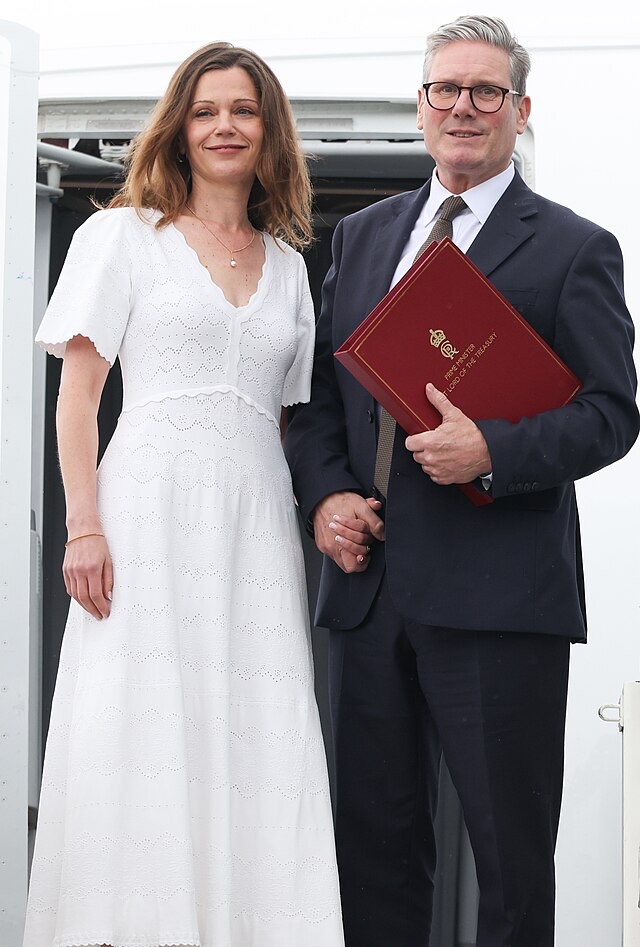Sir Keir Starmer is facing a political firestorm after it was revealed he spent £102,000 on domestic flights during his first 10 months as Prime Minister. The expense—almost triple the amount spent by his predecessor Rishi Sunak in the same timeframe—has prompted accusations of “rank hypocrisy” and reignited debates over taxpayer-funded travel and climate ethics.
Critics argue that the Labour leader’s previous condemnation of Conservative ministers for similar travel practices now rings hollow. With a general election looming, the timing could not be worse for a Prime Minister who promised accountability and a new era of clean government.
The £102,000 Travel Bill
The controversy centers on a string of short-haul private and chartered flights made by Starmer during visits across the UK, including a 41-minute flight to Cornwall. While the Labour Party insists the flights were necessary to fulfill a packed political schedule, many see the six-figure sum as out of touch with the current cost-of-living crisis and inconsistent with Labour’s platform.
To put the figure in context, Rishi Sunak’s government spent £36,900 on domestic flights over a comparable period. That stark difference has provided ample ammunition for Starmer’s political opponents.
Starmer’s Past Comments Come Back to Haunt Him
This backlash is intensified by the Labour leader’s prior statements. When Rishi Sunak used a jet to travel to Leeds in 2023, Starmer accused him of being “detached from reality” and “wasting public money.” Labour’s Shadow Chancellor Rachel Reeves once vowed to crack down on “extravagant” ministerial travel and suggested Cabinet ministers should lead by example.
Now, with Starmer logging more miles—and racking up a larger bill—his opponents are accusing him of doing exactly what he once denounced.
Opposition and Public Backlash
The Conservative Party quickly seized on the revelations, branding Starmer as a “hypocrite” and demanding full transparency. A Tory spokesperson said: “It’s one rule for them and another for the rest of us. Labour is proving they’re no different from the elite they claim to oppose.”
Public sentiment hasn’t been kind either. Social media erupted with criticism, with hashtags like #JetSetKeir and #LabourHypocrisy trending. Many voters voiced frustration over perceived double standards, especially at a time when ordinary people are being told to tighten their belts.
Labour’s Defense of the Flights
Labour officials defended Starmer’s travel, citing the intensity of campaign demands and logistical necessity. They argued that, with visits to multiple regions in a single day, flying is sometimes the only viable option.
A spokesperson also noted that all flights were carbon offset to mitigate environmental impact and emphasized that Starmer has consistently championed green policies at the national level. “The Prime Minister remains fully committed to achieving net-zero goals and reducing emissions,” they said.
Climate Hypocrisy Debate
Despite Labour’s reassurances, green campaigners are uneasy. Environmental groups have questioned how carbon-intensive travel can align with Labour’s climate pledges. Critics argue that offsetting emissions doesn’t erase them—and that public figures must lead by example.
“It’s not just about emissions. It’s about credibility,” said a representative from Extinction Rebellion. “You can’t ask people to fly less and then charter planes for every campaign stop.”
Transparency and Ethical Questions
This scandal also raises fresh concerns about transparency and ethics in government spending. While no rules appear to have been broken, many are calling for tighter regulations on how ministers travel and who pays for it.
Some political analysts suggest the UK should adopt a stricter reporting framework similar to those in place in other democracies, ensuring real-time disclosure of public expenditures and clear criteria for travel justifications.
Conclusion
Keir Starmer’s £102K flight scandal may not break the rules, but it’s doing damage to the image of integrity and reform Labour has tried to project. For a party that campaigned on “cleaning up politics,” this moment has exposed uncomfortable contradictions.
As the election cycle heats up, Labour will need to manage the fallout carefully—especially with growing public demand for authenticity, transparency, and leadership that practices what it preaches.
FAQs
Q1: How much did Keir Starmer spend on domestic flights?
A1: £102,000 over a 10-month period since becoming Prime Minister.
Q2: Why are critics calling it hypocrisy?
A2: Starmer previously criticized Conservative ministers for similar travel expenses, including short-haul flights and use of private jets.
Q3: What has Labour said in defense?
A3: Labour argues the travel was necessary for campaign efficiency and claims the flights were carbon offset.
Q4: How does this compare to Rishi Sunak’s expenses?
A4: Sunak reportedly spent £36,900 on domestic flights in a similar 10-month period.
Q5: Could this affect Starmer’s public image?
A5: Yes. Critics say it undermines Labour’s image of fiscal responsibility and environmental integrity.



